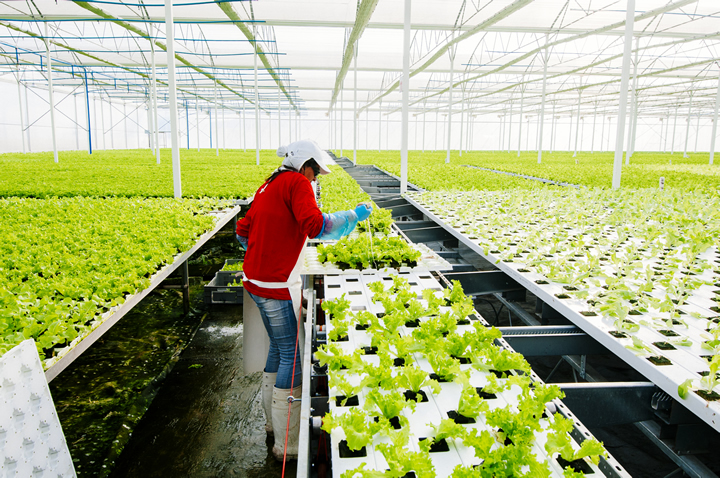Making biological crop amendments the new normal

For the last 70 years, farmers have been dependent on synthetic crop amendments to grow our food. And we have been heavily reliant on the literal fruits of their labor to feed a growing population, a demand that will continue for the foreseeable future. These fertilizers, pesticides, fungicides, herbicides, and more are essential to keeping harvests protected, resilient, and as bountiful as possible. We owe a lot to these products for helping keep our food available and affordable.
Yet, the consequences of our reliance on synthetic crop amendments are of growing concern. The production of these products emits a large quantity of greenhouse gasses (GHGs), the primary contributor to climate change. For example, estimates have shown that the production of fossil-fuel-based fertilizers alone accounts for over 20% of agricultural GHG emissions. Additionally, the actual application of these products can have environmental degradative results, including negative effects on soil health, microbial communities, and water quality, all of which threaten our biodiversity. The farmers themselves who are handling these products are also exposed to potentially harmful toxins released in their use.
These harms have been seen as a necessary evil for years, as no effective alternative was available. However, as the climate crisis grows more urgent, and the threats to environmental and human health amplified, the need for action has never been stronger. And yet, we are faced with the need to address these problems without sacrificing our access to food.
Thankfully, a solution has emerged, with roots in the nature itself that we’re trying to protect. Biological alternatives to synthetic products have graduated from the realm of theory, ready to be put into practice. A biological, alternative crop amendment identifies a plant’s natural resistance to environmental stressors such as pests and weather, and amplifies that quality to create an environmentally friendly substitute for synthetic products. Although these products have been sought after for years, technological and market conditions were not yet ready for their deployment. However, it appears that the wait is nearing an end, as companies like Peptyde Bio, Cytophage, and Robigo are leading the way for the biological product revolution.
Fungal diseases cause up to 10-15% of annual crop yield losses worldwide. Peptyde Bio is replacing chemical fungicides with biofungicides, using environmentally friendly, plant-based, antimicrobial peptides that are manufactured through precision fermentation. Using biofungicides can be a more effective, affordable, and sustainable way to eliminate fungal diseases in crops.
Bacterial infection and disease threaten our food safety and resiliency. Cytophange is designing bacteriophages that specifically target commercially important pathogenic crop bacteria in a sustainable way. Bacteriophage is the key to neutralizing exposed bacteria in a manner that doesn’t allow for the development of resistance, preventing bacterial infection and diseases from spreading.
Robigo, meanwhile, is developing environmentally friendly biopesticides that eliminate pests in a targeted fashion, avoiding the secondhand harm that synthetic predecessors would have had on soil and the crops themselves. These “molecular vigilantes” have shown 99% killing efficacy for targeting different strains of Xanthomonas, which is responsible for a variety of plant diseases.
In these ways, biological alternatives to synthetic products are not only addressing the needs of farmers, but doing so sustainably and, sometimes, even more effectively and affordably.
Both the public and private sectors are incentivized to support the increasing sustainability of the agricultural sector. Just this past December, nearly every country signed on to a deal to protect biodiversity, which will require action across sectors, including farming. As momentum builds, the hope is that biological crop amendments become the new norm, as opposed to their current role as a promising alternative. To achieve this, promising technologies and their associated innovative companies will need the support of strategic partnerships. These can include collaborations with incubators, scientists, and investors, paving the way to complete the delivery of these products into the hands of our eager farmers.
Comments (0)
This post does not have any comments. Be the first to leave a comment below.
Featured Product

